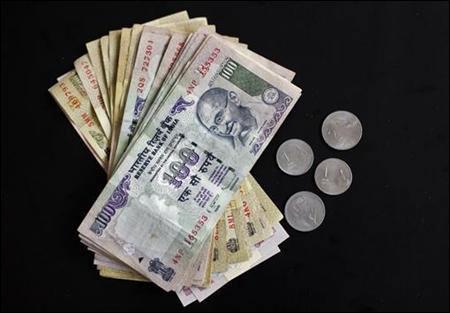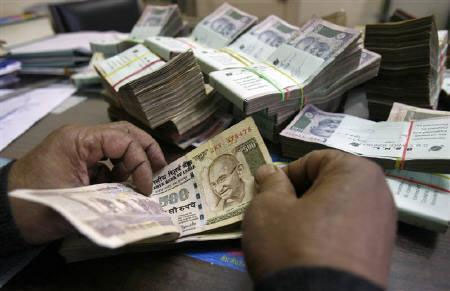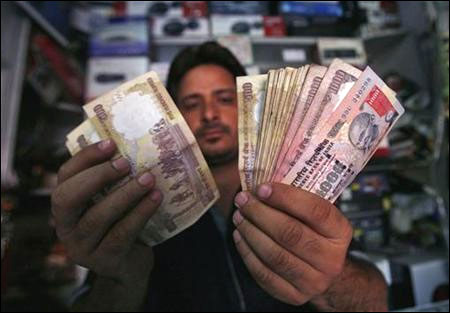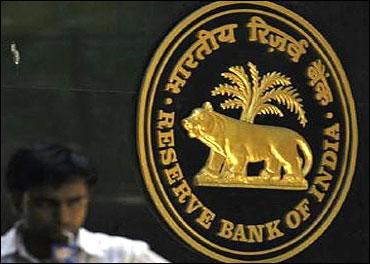Photographs: Vivek Prakash/Reuters Manojit Saha and Vrishti Beniwal in New Delhi
The government is set to remove the legal hurdle in the entry of banks into commodity futures trading, despite the Reserve Bank of India's reservations on the issue.
Banks can now trade in shares, bonds and currencies, but Section 8 of the Banking Regulation Act prohibits them from trading in goods.
But, the finance ministry has now supported the consumer affairs ministry's proposal to amend the law, as it would provide a hedging tool for banks.
Sources familiar with the developments say the Banking Laws Amendment Bill is likely to be tabled in the Monsoon session of Parliament.
. . .
Govt backs banks' entry into commodity futures trading
Photographs: Jayanta Dey/Reuters
Interestingly, the proposal to amend Section 8 of the Act was not examined by Parliament's standing committee on finance, as it was not part of the original Bill.
The Forward Contracts (Regulation) Act, 1952 allows all entities to participate in commodity futures trading.
The move comes despite India being one of the most vocal critics of the commodities market at international fora.
In fact, in Parliament, Finance Minister Pranab Mukherjee recently blamed increasing 'financialisation' for the spurt in oil prices despite a poor economic environment in developed countries.
. . .
Govt backs banks' entry into commodity futures trading
Photographs: Mukesh Gupta/Reuters
The RBI has been against allowing banks to enter this sensitive area, as there is no 'autonomous and independent' commodity regulator in the country.
The Forward Markets Commission, which regulates commodity players, comes under the administrative control of the food and consumer affairs ministry.
A Bill to provide autonomy to the commodities market regulator will be tabled in the next session of Parliament after Cabinet approval.
Government officials, however, say though the FMC has not been accorded an independent status by law, the government does not interfere in the functioning of the commodities market regulator.
. . .
Govt backs banks' entry into commodity futures trading
Photographs: Reuters
The RBI has also raised the issue of a lack of manpower in the FMC that has affected effective monitoring and supervision of commodity players -- something the commodities regulator also acknowledges.
Though banks are not allowed to trade in commodity futures, they support the clearing services and also provide fund and non-fund-based facilities to exchange members for managing their working capital requirements.
Commodity derivatives trading in India was almost non-existent till 2002, except for a few regional exchanges which supported such activity.
It gained momentum after the introduction of national commodity exchanges like the National Commodities and Derivative Exchange and the Multi Commodity Exchange.






article